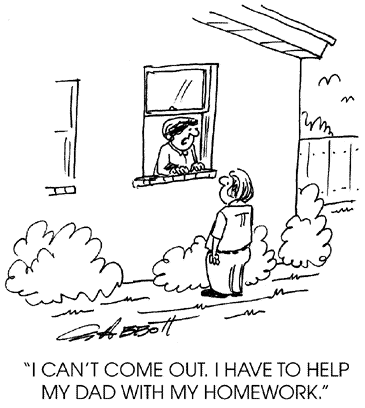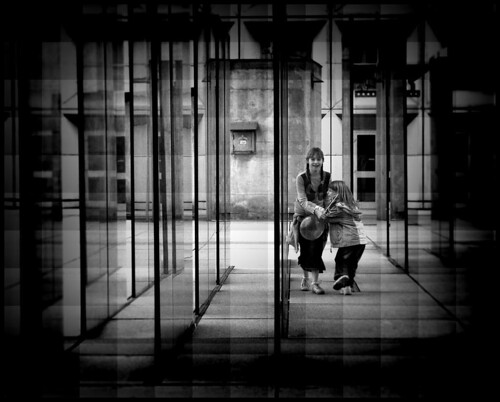 Total Mayhem
Total Mayhem via
Compfight cc
School leaders, teachers, and those that surround the work of education are in a difficult space. The demands to achieve are higher than ever, and the needs of kids, both academically and in the other spaces of their lives, are growing in intensity and complexity, while the resources are growing more narrow in scope. Think of resources broadly. Resources not only include the money used to run schools, but the people and ideas used to feed the schools as well. It is true that teachers and school leaders are working harder than ever, and for most, the work rate is reaching a breaking point. This is creating an unsustainable system. In addition, the metrics of success are often a moving target. Educators see the goalposts as either moving, invisible, or always under construction. Even with this, schools are working to get better each day, but unfortunately, this idea of working to get better may actually be the greatest limiting factor on education today.
A shift, with the potential to transform the learning spaces throughout the country, can come from voices around the country demanding different. Different schools are the ones that everyone wants their kids to attend. Different schools wouldn't allow someone to return from the moon after 50 years and still recognize learning as he or she knew it. Different schools are maximizing the learning and growth of both the students and adults using the passions and strengths that they bring to the table. Different schools aren't taking more tests, but they are testing solutions to the real-life problems that surround them each day. Different schools aren't about raising scores by 1% or 2% each year by wasting instructional time with test prep and unneeded benchmarking tests.
Thinking about different schools is scary, and they are even scary to lead in a time when it is easier to manage and hide in the camouflage of mediocrity that surrounds today's schools. Being with innovative people in innovative spaces that are building allies and networks is a place of hope for those demanding different schools. Different schools, though, won't be demanded around the country until we solve the gap, not the achievement gap, but the courage gap. Education has a courage gap. Educators are risk adverse to a greater degree than most professions, and it is catching up with the efforts to be excellent. It takes courage to lead a school that goes about its business differently. It takes courage to explain to parents that the honor roll assembly, the rewards, and the token economies are failing our kids. Because in a world where most of their children will be small business owners, self-employed, and entrepreneurs, external motivation doesn't get the job done. It takes courage to leverage the resources in an organization that embolden a larger mission while knowing that it will disrupt the inertia and happiness of many.
The schools that we need demand different. They need to support the open and transparent world that is exploding around education. This begins with pushing students into the center of the ring. In the center, there is no room to hide. It is a place of full engagement where real questions about real issues are being addressed with real solutions that will impact real people. Different schools are real. Different schools are life, and different school breath life into the students that they serve. The truth is communities, and this includes the global community, is demanding different, and the volume of our busyness to get better is drowning out the plea. The cat is out of the bag, but schools, for the most part, are trapped in the darkness of the bag. Demanding different means saying no to the industrial testing complex that surrounds the schools of today. It means being sensible about how to showcase learning for the teachers looking to shape new learning experiences as well as the external audiences. It means saying no to testing for the sake of testing, and it means creating excellence without the definition of excellence coming from the tip of a number two pencil.
It is easy to call for different, even to demand different, but how do educators go about crafting different. It begins with three words: engage, empower, energize. These three words should be the mission of all schools. Teachers and leaders that engage, empower, and energize will work tirelessly to push student choice, student voice, and authentic audience into daily learning. They will use these areas as the barometer of rigor and relevance. If they don't exist, it isn't good enough. Without these elements, the incrementalism of getting better creeps back into the equation, and the possibility of schools that are different becomes a dream of only a few.
Pockets of excellence exist, and they are available for replication. They are usually found in classrooms where teachers that are demanding different. They are hiding in plain sight in a school seeking only better. In these spaces, students are connecting to their community by learning beyond the classroom. This may be learning at the beach or the mountains, but community connection can also come from being in the backyard or a public park. Schools that are thinking different are finding ways to balance green time and screen time for kids. Kids are connecting deeply through technology, and there is a need for balance with community connection.
In other spaces, those demanding different are engaging, empowering, and energizing learning through the power of story. Every job, every career, every space in life requires understanding the story of others, crafting a coherent narrative of one's own life, and telling the story of the ideas that are worth spreading. Different schools are required to tell their stories in a poignant, coherent, concise, and beautiful way each day because the community knows better schools, but the community needs helps marrying itself to different schools. It means that students are the storytellers of their learning, teachers are the storytellers of their spaces of learning, and the school leaders plays the role of storyteller-in-chief. Someone is always telling the story of the school. The storyteller, when done differently, should be such a cacophony coming from the inside that it is impossible for external forces to guide the story in the wrong direction. Different schools know that story connects humans, and that all story forms an ecosystem that makes sense of the world. Different schools make sense for students.
Different schools are making. They are designing, making, and creating in ways that push student passions to the forefront. The design thinking process is foundational to making. It surges empathy into schools, and allows for students to begin to develop their brand. Students have their creations (writing, music, video, inventions) in places for purchase for an audience around the planet have no time to tarnish their digital footprint. They realize that every Tweet, Facebook post, and picture on Instagram could be seen by a potential customer, and they don't have time to lose customers. Making allows for greater student understanding of marketing, economics, branding, and more. Different schools are demanding that their students are passionate enough to creative, willing to risk failure, and bold enough to demand their place in the world.
The best schools, not the ones trying to get better, are nesting learning in a way that eliminates silos, grows connections, and bring creation, collaboration, communication and critical thinking to the heart of things. This isn't happening with a focus on school schedules, earning credits, and having bells to dictate when learning stops. Demand that the chains of schools that have served yesterday release their bonds. Lean into the possibility that being a part of a different type of school will make your infinitely more hirable in the future. Embrace the power to amplify the work of not only the school in which you park your car each day, but all schools as the connections and networks are ready for this to happen. Say yes more often. Close the courage gap. Be willing to work different, think different, and serve different.
Demand different schools that engage, empower, and energize today's kids who are our everything for tomorrow.
http://aprincipalspeaking.blogspot.com/2014/03/demand-different.html?m=1









